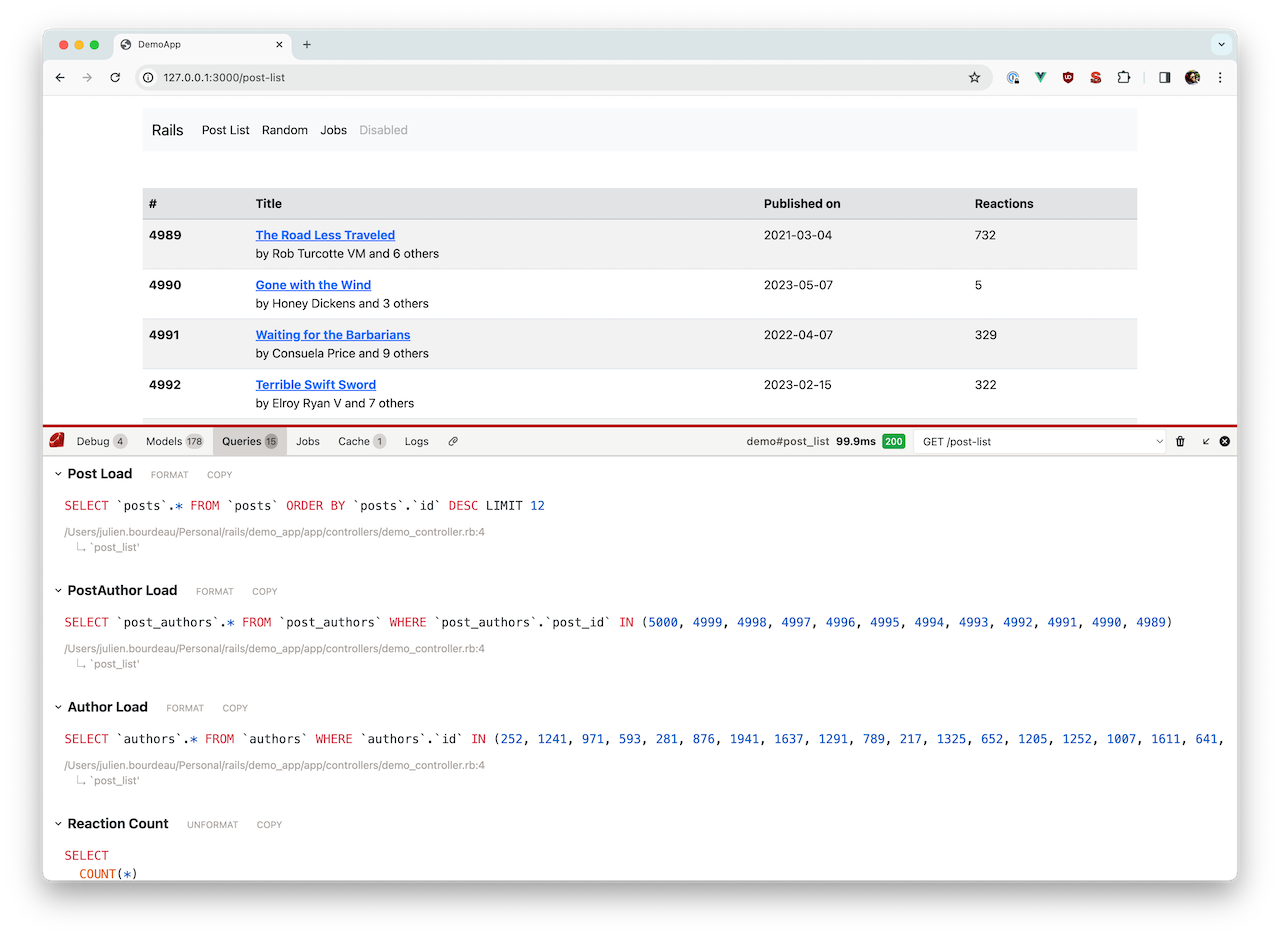Changelog News
Developer news worth your attention
Monday again!? 👋
Our much-anticipated Ship It! reboot has launched its first episode and early reviews are positive, to say the least:
“Very good start on ShipIt 2.0 :)” – Lars
“Justin and Autumn are a fantastic pair” – Thomas
“Quite cool first episode and happy to see ship it continue 🙂” – Konrad
Ok, let’s get into the news. (Audio Edition)
🎧 ICYMI: our latest podcasts for developers
🎙️ Stefano Maffulli is trying to define “Open Source AI” (The Changelog #578)
💚 Jamie Tanna on the indie web, ADHD, DMD & more (Friends #31)
🚀 Jason Hall talks building containers without Docker (Ship It! #91)
🪩 Jessica Janiuk & Mark Thompson from the Angular team (JS Party #309)
🤖 Gemini vs OpenAI with Daniel & Chris (Practical AI #256)
⏰ Gophers Say! Live from GopherCon EU Athens 2024 (Go Time #303)
🪐 Quantum Computing’s Hard, Cold Reality Check
This IEEE Spectrum piece lays out the bear case for near-term quantum computing applications, some of which has been hype-driven (surprised?)
Some of the more ambitious timelines proposed by quantum computing companies have suggested these machines could be impacting real-world problems in just a handful of years. But there’s growing pushback against what many see as unrealistic expectations for the technology.
I guess we can add QC to the list (alongside cryptocurrency, autonomous vehicles, generative AI) of computing endeavors with smart people on either side debating their validity, timeliness & long-term effects on the human race.
🍴 Maxim Dounin announces freenginx.org
Maxim is one of the earliest (and still most active) Nginx contributors who worked for F5 after they acquired Nginx Inc. in 2019. There’s a lot of history there, which is covered pretty well in this Ars Technica article. Maxim’s statement about the forked version:
Unfortunately, some new non-technical management at F5 recently decided that they know better how to run open source projects. In particular, they decided to interfere with security policy nginx uses for years, ignoring both the policy and developers’ position…
As such, starting from today, I will no longer participate in nginx development as run by F5. Instead, I’m starting an alternative project, which is going to be run by developers, and not corporate entities.
The “free” in Maxim’s case doesn’t mean “free as in libre”, neither does it mean “free as in beer”. It means “free as in free from arbitrary corporate actions.”
💥 Tech Strikes Back
Nadia Eghbal Asparouhova goes deep on AI & the “effective accelerationism” (e/acc) movement:
Artificial intelligence is a rare domain where technologists themselves are being proactively cautious about their own power before any demonstrable harm has been done. The moral panic now comes from within — a stark deviation from how technological revolutions historically influence society…
I find Nadia’s writing to be deep, easily consumed & thought-provoking, regardless of her subject.
It was the tech backlash of the 2010s that tore a hole through tech’s image as it previously saw itself: a burgeoning industry composed of startups and their financiers, whose members would grind away writing code on their MacBooks and attending Y Combinator’s demo days, whose hardest decision every year was whether to go to Burning Man. Though a founder’s life was filled with highs and lows, the cycle of tech seemed stable and predictable. Most importantly, tech was beloved by the outside world, who gleefully consumed stories of young founders and their mythical overnight successes.
What went wrong?
😬 Neo4j simplifies the complex with graphs
Thanks to Neo4j for sponsoring Changelog News 💰
Is your code getting dragged down by JOINs and long query times? The problem might be your database… Try simplifying the complex with graphs.
A graph database lets you model data the way it looks in the real world– instead of forcing it into rows and columns.
Stop asking relational databases to do more than they were made for. Graphs work well for use cases with lots of data connections like supply chain, fraud detection, real-time analytics, and genAI.
With Neo4j, you can code in your favorite programming language and against any driver. Plus, it’s easy to integrate into your tech stack.
People are solving some of the world’s biggest problems with graphs…Now it’s your turn.
Visit Neo4j.com/developer to get started!
🕳️ Avoiding common pitfalls when first contributing to open source
Angie Byron (long-time member of the Drupal community & lovely person who we’ve had the pleasure of knowing a little bit) writes up some advice on how to get started in open source. Here’s her high-level bullet points. You can click-through for the details:
- Start with your interests
- Find a welcoming project
- Community, before code
- Start with the Docs
On that last point, Angie says this which is so true somebody should put it on a billboard or a t-shirt or something:
You might not know it yet, but as a newcomer to an open source project, you have this AMAZING superpower: you are often-times the only one in that whole project capable of reading the documentation through new eyes. Because I can guarantee, the people who wrote that documentation are not new.
😳 The high-risk refactoring
Miroslav Nikolov knows the cost of a refactoring gone wrong, so he took some time to lay out the risks and how you can effectively address them and gives some solid advice on whether or not you should refactor:
👍 Refactor if things are getting too complicated, but
👎 stop if you can’t prove it works.👍 Accompany new features with refactoring for areas you foresee to be subject to a change, but
👎 copy-pasting is ok until patterns arise.👍 Be proactive in finding new ways to ensure refactoring predictability, but
👎 be conservative about the assumption QA will find all the bugs.👍 Move business logic out of busy components, but
👎 be brave enough to keep the legacy code intact if the only argument is “this code looks wrong”.
🏋️ A powerful “debugbar” for Ruby on Rails
Julien Bourdeau draws inspiration from Laravel’s Debugbar and brings it to the Rails world.
🔝 Popular git config options
Julia Evans aggregates people’s responses to the question: what are your favourite git config options to set? These are definitely worth a scroll, but even more interesting to me is her opening remark:
I always wish that command line tools came with data about how popular their various options are, like: “basically nobody uses this one”, “80% of people use this, probably take a look”, “this one has 6 possible values but people only really use these 2 in practice”
That’d be a pretty compelling UX win for toolmakers, if you can pull it off…
💰 Paying people to work on open source is good actually
Jacob Kaplan-Moss “rants” against open source purists criticizing their maintainer peers for getting paid by “impure or imperfect mechanisms”:
We have to accept the world as it is – even if it’s not the world we want. This means we have to be okay with the idea that maintainers need to be paid. Far too often I see arguments like: “maintainers shouldn’t be paid by private companies because the government should be supporting them.” Sure, this sounds great – but governments aren’t doing this! So this argument reduces to “open source maintainers shouldn’t be paid”. I can’t get on board with that.
🎧 You should listen to The Changelog
Long-time listener (first-time caller) Jamie Tanna may be preaching to the choir with this one, but hey I’m a choir member so why not spread the good vibes around?
As noted in the episode, the first time I listened to The Changelog was in 2016, at least according to the records I have from my old phone’s Podcast Addict backup. I’ve been listening to it over the years since, and absolutely loving the quality and breadth of topics, giving me a chance to keep engaged and up-to-date with happenings in the tech industry.
Thanks, Jamie, for helping me follow one of my favorite proverbs! 🤗
🎞️ Clip of the week
Adam’s explainer of Danny Meyer’s “Salt Shaker Theory” of leadership was just one highlight from our excellent conversation with Joe Reis:
🔗 Quick hits before I let you go
- Noted: Study shows literal handwriting better for your brain than digital
- Observed: A framework for building data apps from the CLI
- Localized: This AI-powered desktop note-taking app stays on your machine
- Cancelled Not all TLDS are created equal, esp. those run by nation states
- Booted: AWS has a new JS runtime optimized for boot speed (think: Lambda)
- Detected: AI file type detection so you can ditch that finicky regex
- Sent: A simple plaintext presentation tool. No fancy file formats
That’s the news for now! Have a great week, forward this to a friend who might dig it & I’ll talk to you again real soon. 💚
–Jerod

